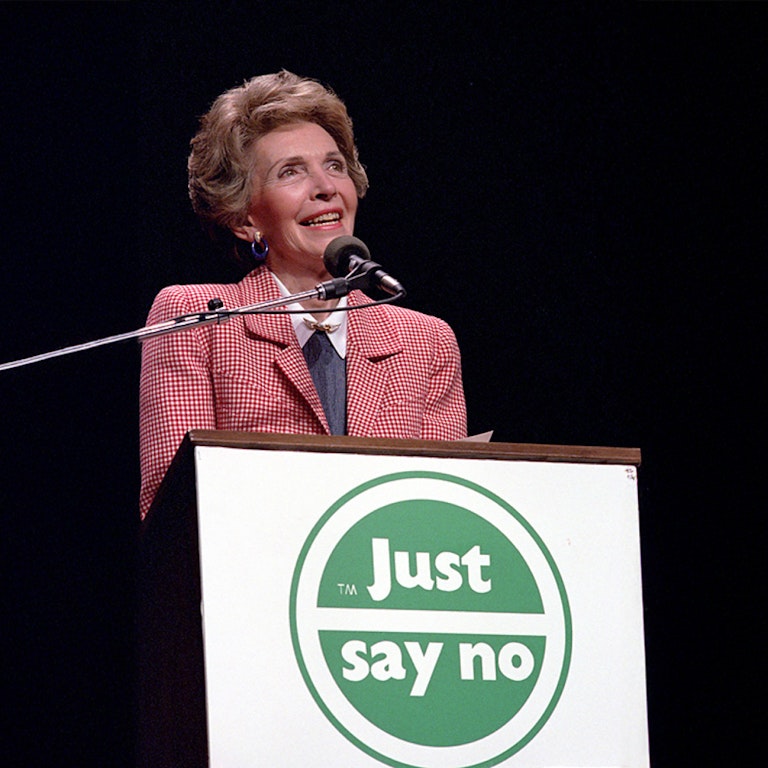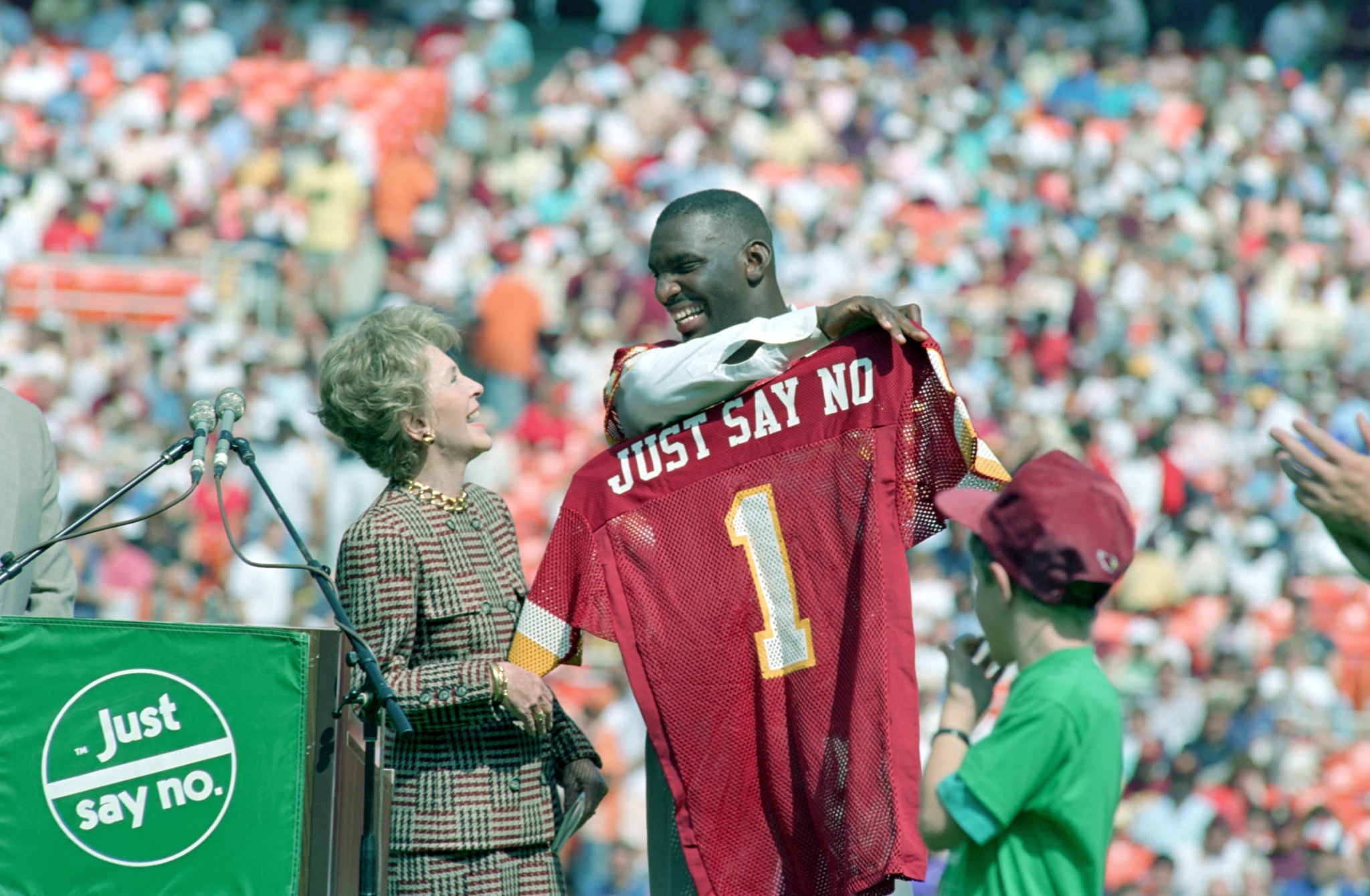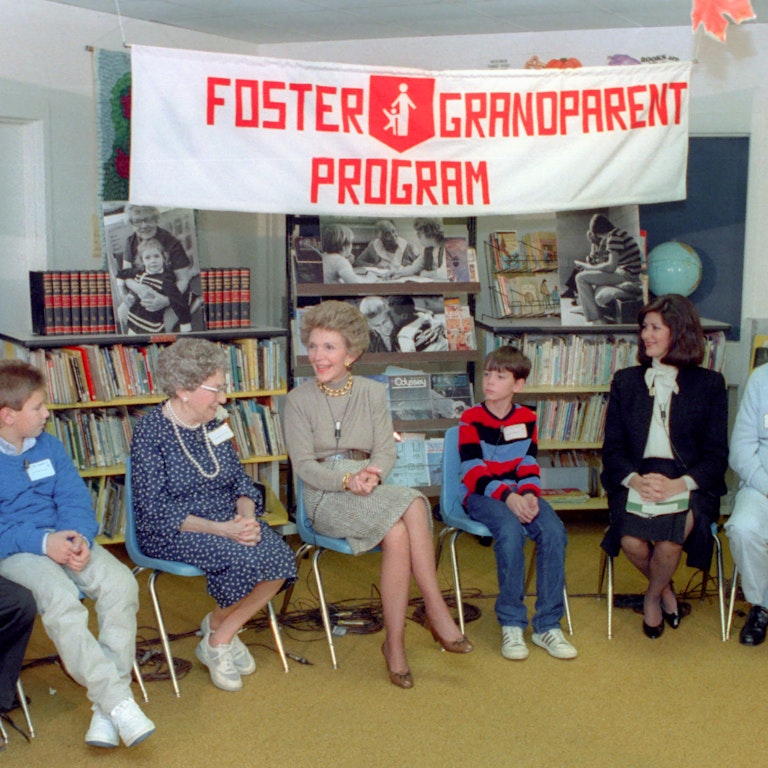
Nancy Reagan
Her Causes

Just Say No
“Drugs take away the dream from every child’s heart and replace it with a nightmare, and it’s time we in America stand up and replace those dreams.” -Nancy Reagan
While she was involved in the anti-drug cause before reaching the White House, by 1982, the first lady had embraced the campaign with energy and evident feeling. A name for her cause was chosen after she met with schoolchildren in Oakland. “A little girl raised her hand," she remembered, "and said, ’Mrs. Reagan, what do you do if somebody offers you drugs?’ And I said, ’well, you just say no.’ And there it was born. I think people thought we had an advertising agency over who dreamed that up - not true.”
The Impact of Just Say No
By 1988 more than 12,000 "Just Say No" clubs had been formed across the country and around the world. The results were encouraging: cocaine use by high-school seniors dropped by one-third, the lowest rate in a decade.

The crusade made serious demands on her time: 110 appearances and fourteen anti-drug speeches in 1984 alone. Her intense effort to fight school-age drug and alcohol abuse took her to sixty-five cities in thirty-three states and nine foreign countries. She also invited the spouses of two dozen heads of state to a three-day anti-drug forum in Washington and Atlanta.
In 1986, when the president signed a proclamation creating the first official "Just Say No to Drugs Week," Nancy Reagan spoke from the heart when she said, "Someone asked me if I wanted to make a New Year’s wish, and I said yes- and it was that I’d like to see every young person in the world join the ’Just Say No’ to drugs club. Well, just the fact that Congress has proclaimed "Just Say No Week’ and in light of all the activities taking place, it seems that my wish is well on its way to coming true."
President Reagan’s Remarks

Promoting Foster Grandparents
“It’s one of the best programs I’ve ever seen because it benefits both sides: children, who need love, and grandparents, elderly people, who need to feel wanted.” –Nancy Reagan
As a measure of the power of a first lady’s attention, in the program’s first year of operation, 782 foster grandparents carried out thirty-three projects in twenty-seven states. By 1985, some 19,000 foster grandparents served some 65,000 children through 245 projects in all fifty states, Puerto Rico, the Virgin Islands and the District of Columbia.
“She got on an airplane and hardly ever came back to the White House,” remembers Sheila Tate, her press secretary. “She was on the road month after month…She invited the press to come with her. She took the camera that you were shining on her and turned it around and focused it on a cause – one she could do something about.”